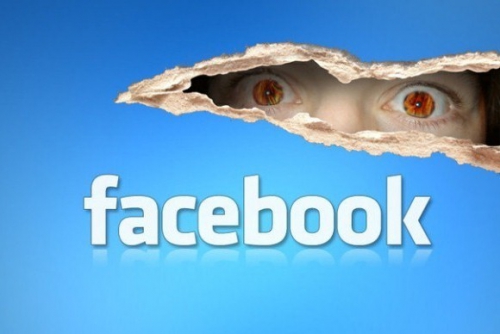vendredi, 26 décembre 2014
How Facebook Killed the Internet

How Facebook Killed the Internet
Facebook killed the internet, and I’m pretty sure that the vast majority of people didn’t even notice.
I can see the look on many of your faces, and hear the thoughts. Someone’s complaining about Facebook again. Yes, I know it’s a massive corporation, but it’s the platform we’re all using. It’s like complaining about Starbucks. After all the independent cafes have been driven out of town and you’re an espresso addict, what to do? What do you mean “killed”? What was killed?
I’ll try to explain. I’ll start by saying that I don’t know what the solution is. But I think any solution has to start with solidly identifying the nature of the problem.
First of all, Facebook killed the internet, but if it wasn’t Facebook, it would have been something else. The evolution of social media was probably as inevitable as the development of cell phones that could surf the internet. It was the natural direction for the internet to go in.
Which is why it’s so especially disturbing. Because the solution is not Znet or Ello. The solution is not better social media, better algorithms, or social media run by a nonprofit rather than a multibillion-dollar corporation. Just as the solution to the social alienation caused by everybody having their own private car is not more electric vehicles. Just as the solution to the social alienation caused by everyone having their own cell phone to stare at is not a collectively-owned phone company.
Many people from the grassroots to the elites are thrilled about the social media phenomenon. Surely some of the few people who will read this are among them. We throw around phrases like “Facebook revolution” and we hail these new internet platforms that are bringing people together all over the world. And I’m not suggesting they don’t have their various bright sides. Nor am I suggesting you should stop using social media platforms, including Facebook. That would be like telling someone in Texas they should bike to work, when the whole infrastructure of every city in the state is built for sports utility vehicles.
But we should understand the nature of what is happening to us.
From the time that newspapers became commonplace up until the early 1990’s, for the overwhelming majority of the planet’s population, the closest we came to writing in a public forum were the very few of us who ever bothered to write a letter to the editor. A tiny, tiny fraction of the population were authors or journalists who had a public forum that way on an occasional or a regular basis, depending. Some people wrote up the pre-internet equivalent of an annual Christmas-time blog post which they photocopied and sent around to a few dozen friends and relatives.
In the 1960s there was a massive flowering of independent, “underground” press in towns and cities across the US and other countries. There was a vastly increased diversity of views and information that could be easily accessed by anyone who lived near a university and could walk to a news stand and had an extra few cents to spend.
In the 1990s, with the development of the internet – websites, email lists – there was an explosion of communication that made the underground press of the 60’s pale in comparison. Most people in places like the US virtually stopped using phones (to actually talk on), from my experience. Many people who never wrote letters or much of anything else started using computers and writing emails to each other, and even to multiple people at once.
Those very few of us who were in the habit in the pre-internet era of sending around regular newsletters featuring our writing, our thoughts, our list of upcoming gigs, products or services we were trying to sell, etc., were thrilled with the advent of email, and the ability to send our newsletters out so easily, without spending a fortune on postage stamps, without spending so much time stuffing envelopes. For a brief period of time, we had access to the same audience, the same readers we had before, but now we could communicate with them virtually for free.
This, for many of us, was the internet’s golden age – 1995-2005 or so. There was the increasing problem of spam of various sorts. Like junk mail, only more of it. Spam filters started getting better, and largely eliminated that problem for most of us.
The listservs that most of us bothered to read were moderated announcements lists. The websites we used the most were interactive, but moderated, such as Indymedia. In cities throughout the world, big and small, there were local Indymedia collectives. Anyone could post stuff, but there were actual people deciding whether it should get published, and if so, where. As with any collective decision-making process, this was challenging, but many of us felt it was a challenge that was worth the effort. As a result of these moderated listservs and moderated Indymedia sites, we all had an unprecedented ability to find out about and discuss ideas and events that were taking place in our cities, our countries, our world.
Then came blogging, and social media. Every individual with a blog, Facebook page, Twitter account, etc., became their own individual broadcaster. It’s intoxicating, isn’t it? Knowing that you have a global audience of dozens or hundreds, maybe thousands of people (if you’re famous to begin with, or something goes viral) every time you post something. Being able to have conversations in the comments sections with people from around the world who will never physically meet each other. Amazing, really.

But then most people stopped listening. Most people stopped visiting Indymedia. Indymedia died, globally, for the most part. Newspapers – right, left and center – closed, and are closing, whether offline or online ones. Listservs stopped existing. Algorithms replaced moderators. People generally began to think of librarians as an antiquated phenomenon.
Now, in Portland, Oregon, one of the most politically plugged-in cities in the US, there is no listserv or website you can go to that will tell you what is happening in the city in any kind of readable, understandable format. There are different groups with different websites, Facebook pages, listservs, etc., but nothing for the progressive community as a whole. Nothing functional, anyway. Nothing that approaches the functionality of the announcements lists that existed in cities and states throughout the country 15 years ago.
Because of the technical limitations of the internet for a brief period of time, there was for a few years a happy medium found between a small elite providing most of the written content that most people in the world read, and the situation we now find ourselves in, drowning in Too Much Information, most of it meaningless drivel, white noise, fog that prevents you from seeing anywhere further than the low beams can illuminate at a given time.
It was a golden age, but for the most part an accidental one, and a very brief one. As it became easy for people to start up a website, a blog, a Myspace or Facebook page, to post updates, etc., the new age of noise began, inevitably, the natural evolution of the technology.
And most people didn’t notice that it happened.
Why do I say that? First of all, I didn’t just come up with this shit. I’ve been talking to a lot of people for many years, and a lot of people think social media is the best thing since sliced bread. And why shouldn’t they?
The bottom line is, there’s no reason most people would have had occasion to notice that the internet died, because they weren’t content providers (as we call authors, artists, musicians, journalists, organizers, public speakers, teachers, etc. these days) in the pre-internet age or during the first decade or so of the internet as a popular phenomenon. And if you weren’t a content provider back then, why would you know that anything changed?
I and others like me know – because the people who used to read and respond to stuff I sent out on my email list aren’t there anymore. They don’t open the emails anymore, and if they do, they don’t read them. And it doesn’t matter what medium I use – blog, Facebook, Twitter, etc. Of course some people do, but most people are now doing other things.
What are they doing? I spent most of last week in Tokyo, going all over town, spending hours each day on the trains. Most people sitting in the trains back during my first visit to Japan in 2007 were sleeping, as they are now. But those who weren’t sleeping, seven years ago, were almost all reading books. Now, there’s hardly a book to be seen. Most people are looking at their phones. And they’re not reading books on their phones. (Yes, I peeked. A lot.) They’re playing games or, more often, looking at their Facebook “news feeds.” And it’s the same in the US and everywhere else that I have occasion to travel to.
Is it worth it to replace moderators with algorithms? Editors with white noise? Investigative journalists with pictures of your cat? Independent record labels and community radio stations with a multitude of badly-recorded podcasts? Independent Media Center collectives with a million Facebook updates and Twitter feeds?
I think not. But that’s where we’re at. How do we get out of this situation, and clear the fog, and use our brains again? I wish I knew.
David Rovics is a singer/songwriter based in Portland, Oregon.
00:05 Publié dans Actualité | Lien permanent | Commentaires (0) | Tags : actualité, facebook, multimedia, réseaux sociaux, moeurs contemporaines, problèmes contemporains |  |
|  del.icio.us |
del.icio.us |  |
|  Digg |
Digg | ![]() Facebook
Facebook



Les commentaires sont fermés.